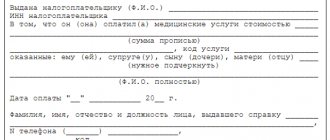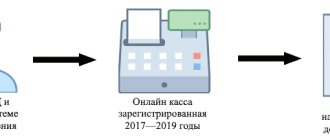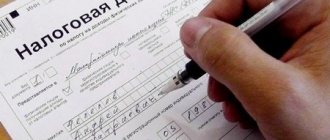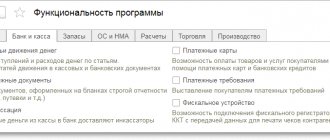After a business trip, the employee is required to confirm the costs of renting housing. Let's see what reporting documents are required for hotel stays and how they should be prepared.
An employee’s activities may involve the need for a business trip to another locality, where he will need to work and live for a certain period of time. In accordance with Resolution No. 749 “On the specifics of sending employees on business trips,” the employee is given money in advance, for which, of course, he will subsequently have to account for it. It is for this purpose that reporting documents for hotel accommodation will be required to confirm the validity of travel expenses, in this case to pay for rent: a hotel room, other rented premises.
Travel expenses
The main expenses that an employer is obliged to pay to an employee sent on a business trip are:
- daily allowance;
- travel expenses to and from a business trip;
- living expenses.
The company sets the daily allowance amount independently in its local regulations. The employer also compensates for travel expenses based on the standards established in the internal document. For example, the Business Travel Regulations may set a limit on expenses for renting accommodation. All this is spelled out in Art. 168 Labor Code of the Russian Federation.
When do you need to report to your employer?
Payment for hotel accommodation on a business trip is regulated not only by current legislation, but also by internal regulations. The manager must establish the procedure for sending on a business trip, submitting reports and reimbursement of expenses for the trip in the collective agreement, regulations on business trips and other legal acts.
The employee generates and provides the employer with an advance report within three days upon returning from a business trip. The expense report must also include an invoice (check) from the hotel. The accountant will only accept the form if it is filled out correctly. As a general rule, such reporting forms should include the following information:
- register name;
- a series of documents;
- six-digit number;
- name of the hotel organization;
- registration details - TIN, checkpoint, etc.;
- address;
- seal.
IMPORTANT!
The reporting form must be produced in a printing house or printed through specialized services or automated systems, taking into account all legal requirements (RF RF No. 359 dated 05/06/2008).
It is not allowed to provide a report printed from a regular document without special verification of automated systems.
Reporting documents for hotel stays
According to clause 28 of the Rules for the provision of hotel services (approved by Decree of the Government of the Russian Federation of October 9, 2015 No. 1085), the hotel issues a document confirming payment for the stay: a strict reporting form (SRF) or a KKM check.
VAT allocated on a hotel invoice can be deducted without an invoice . This is explained in the letter of the Ministry of Finance dated February 26, 2020 No. 03-07-09/13555.
If an employee brings back from a business trip a hotel bill in which meals are highlighted as a separate line, then these expenses cannot . And the cost of food must be subject to personal income tax and insurance premiums in accordance with subparagraph. 12 clause 1 art. 264 Tax Code of the Russian Federation. The Ministry of Finance takes a similar position (letter dated October 14, 2009 No. 03-04-06-01/263).
The documents provided along with the advance report must contain information not only about the amount of amounts actually paid, but also information that allows you to unambiguously confirm the name of the paid service (letter of the Federal Tax Service of Russia dated November 25, 2011 No. ED-4-3/19756).
When traveling abroad, the hotel also issues documents. And when preparing an expense report, hotel invoices must line by line into Russian.
This follows from clause 9 of the Regulations on accounting and financial reporting in the Russian Federation (approved by order of the Ministry of Finance dated July 29, 1998 No. 34n).
In what cases does it become necessary
A business trip is a trip by an employee by order of the employer for a certain period of time to fulfill an official assignment outside the place of permanent work (Part 1 of Article 166 of the Labor Code of the Russian Federation).
In modern conditions, almost no enterprise can do without sending employees on work trips.
4 main types and reasons for business trips:
- solving production problems in Russia or abroad;
- an employee’s trip to a separate unit located outside the place of permanent work;
- a visit by an employee to a unit of the organization’s head office;
- mandatory training outside the locality to confirm qualifications (for example, doctors in medical institutions are required to undergo training and confirm their certificate every five years).
Only employees who have an employment relationship with the employer are sent on business trips. The organization is obliged to reimburse the employee for expenses incurred.
Reporting documents for living in an apartment
What reporting documents for living in an apartment will a business traveler bring from his trip?
If an employee on a business trip lived in a rented apartment, he can confirm his expenses with a rental agreement and a document confirming payment for accommodation (letter of the Ministry of Finance dated January 15, 2016 No. 03-03-07/803).
If the employee provided a rental agreement and payment document (for example, a bank card statement or an online check), these expenses can be taken into account for income taxes. Personal income tax and insurance premiums do not need in accordance with clause 1 of Art. 217, sub. 12 clause 1 art. 264 and paragraph 2 of Art. 422 of the Tax Code of the Russian Federation.
If the employee was unable to provide supporting documents for the costs of living in an apartment (hotel), for example, due to loss, the employer can reimburse him for these costs. cannot be accepted when taxing profits .
Where can I stay during a business trip?
You don't have to live in a hotel.
There are several options that a business traveler can use for accommodation:
- Hotel;
- Office space (room or apartment);
- Renting residential premises;
- With relatives.
In this case, each employee has the right to independently decide where he will live. By reserving a room in a hotel complex, an employee can use all the household services necessary for normal living during a business trip.
If the company’s balance sheet includes living space necessary for the accommodation of business travelers, then the question of reserving a hotel room does not arise.
Sometimes circumstances develop in such a way that an employee has the opportunity to stay with his relatives.
This is the best option, since a person is in the most comfortable living conditions and has the opportunity to see loved ones, whom he meets quite rarely due to the long distance.
Reporting documents when ordering services by an employer
In some companies, expenses for accommodation on a business trip are paid by bank transfer directly to the bank account of the hotel or hiring agent. In this case, payment for the hotel on a business trip is not made: upon check-in, the employee only gives the reservation number. When leaving the hotel and handing over the room, the business traveler is given a document issued in the name of the employer.
If the employee paid for additional expenses at the hotel (for example, laundry or breakfast), a separate document is issued for these services.
An employer can also enter into an agreement to rent an apartment for its employees to organize living conditions for them on a business trip. This is especially true for long-term or frequent business trips. The apartment can be rented from both individuals and legal entities. In this case, a lease agreement . And at the end of the lease term (or the period specified in the agreement), the lessor can issue a lease deed. In this case, reporting documents for accommodation will also be issued to the company, and not to the posted worker.
Accommodation for workers sent on a business trip can be arranged in temporary trailers or houses. Sometimes the employer builds entire mobile towns or sites from such pastures and cabins. This is convenient in cases where the construction of a facility is underway and it is more convenient for workers to live immediately on site - to reduce costs and travel time.
As you can understand, the costs of organizing temporary shelters are also borne directly by the employer. Consequently, the employees themselves using such housing do not need any additional documents.
Established standards
The amount of daily allowance is determined by the employer.
Payment at a hotel complex for a seconded employee involves the formation of a specific order from the employer or direction for the trip, as well as a package of documents indicating certain costs.
Based on the adopted legislation, such expenses must be compensated to the employee if, before the trip, he is not given a certain amount of money, for which he signs in the consumables. The law does not define clear standards for reimbursement of funds, therefore each employer has the right to independently set indicators.
Most often, the amount of the maximum compensation varies from 1000-3500 rubles. However, this indicator is influenced by such factors as: the direction of the business trip (within the country or abroad), other regions of the country.
In addition, another important criterion is taken into account - payment of income taxes. It is important to note that compensation for such expenses does not count as income.
Some companies use this aspect as a way to receive compensation in a large amount, so a law was passed where personal income tax is not withheld if the amount of accommodation during a business trip does not exceed 3,500 rubles. Then the posted worker receives compensation at no additional cost.
If the cost of living is more than the established amount, then the employee also has the right to receive full reimbursement of his expenses, but in this case it is important to note that the accounting department will deduct a tax of 13% from this amount.
Advance report
Within 3 working days after returning, the employee must provide an advance report on expenses incurred during the trip to the company’s accounting department. To avoid problems with its preparation, it is better to familiarize yourself with the list of required documents before departure. This can be done in the accounting department.
Sample list of business trip expenses:
- daily allowance (documentary confirmation is not required);
- travel (air and railway, bus tickets, etc.);
- accommodation (cash receipts, receipts, invoices, rental agreements, etc.).
The service task has been canceled and is no longer required for the report.
The advance report is filled out according to the approved form AO-1 on both sides.
The employee's expenses are filled in on the reverse side.
Service memo
The abolition of travel permits in 2015 created some problems with determining the period of stay on a business trip. Some enterprises continue to use it for their convenience.
In the absence of travel documents, the time spent on a business trip is determined by the residence documents. There are cases when it is impossible to provide them either.
Then a memo drawn up by the employee himself and certified by the receiving party can help.
Drawing up an order
An order to send an employee on a business trip must be issued in writing, for example, in the form of an order. This conclusion follows from paragraph. 2 clause 3 of the Regulations on the specifics of sending employees on business trips, approved by Decree of the Government of the Russian Federation of October 13, 2008 N 749 in accordance with Part 2 of Art. 166 Labor Code of the Russian Federation.
The order is drawn up in three copies:
- One copy is given to the payroll group to calculate the employee’s average salary for the business trip.
- The second - to the accounting department of the organization, which is directly involved in calculating travel expenses, to issue an advance.
- Another copy remains in the employee’s hands. You must present it at the place of business trip.
The order is signed by the manager and the employee himself, this implies consent to the trip. It requires coordination with the HR department and some other services.
The document stipulates:
- place of referral;
- purpose and duration of stay;
- source of funds (this is of great importance in the budget).
Duration of the trip
The duration of a business trip is the period lasting from the day the employee leaves until the day he returns from it. This follows from paragraph. 2 clause 4 of the Regulations on business trips. Determined by the employer taking into account the volume, complexity and other features of the official assignment. The maximum term is not established by law.
In connection with the cancellation of the travel certificate, the period of stay on the work trip is determined by the travel documents provided by the employee.
The departure day is calculated according to the departure date:
- trains;
- airplane;
- bus or other transport.
Day of return - according to the date of arrival in the locality.
The duration of the trip must be determined before it begins in order to calculate the amount of the advance paid to the employee and take into account the working time of the traveler in the time sheet.
Payment for accommodation without confirmation
Reimbursement for hotel expenses on a business trip without submitting supporting documents can be made only after obtaining the consent of the company administration. In this case, the accounting department will need to find other reasons for calculating payments to the employee, since payment of housing costs is made only after submitting supporting documentation. If they are absent, there are no grounds for transferring payment.
Thus, the lack of certification documentation can put accounting specialists in a difficult position. The inability to certify the facts of expenses incurred, verify their consistency and validity of location, deprives the grounds for reimbursement.









